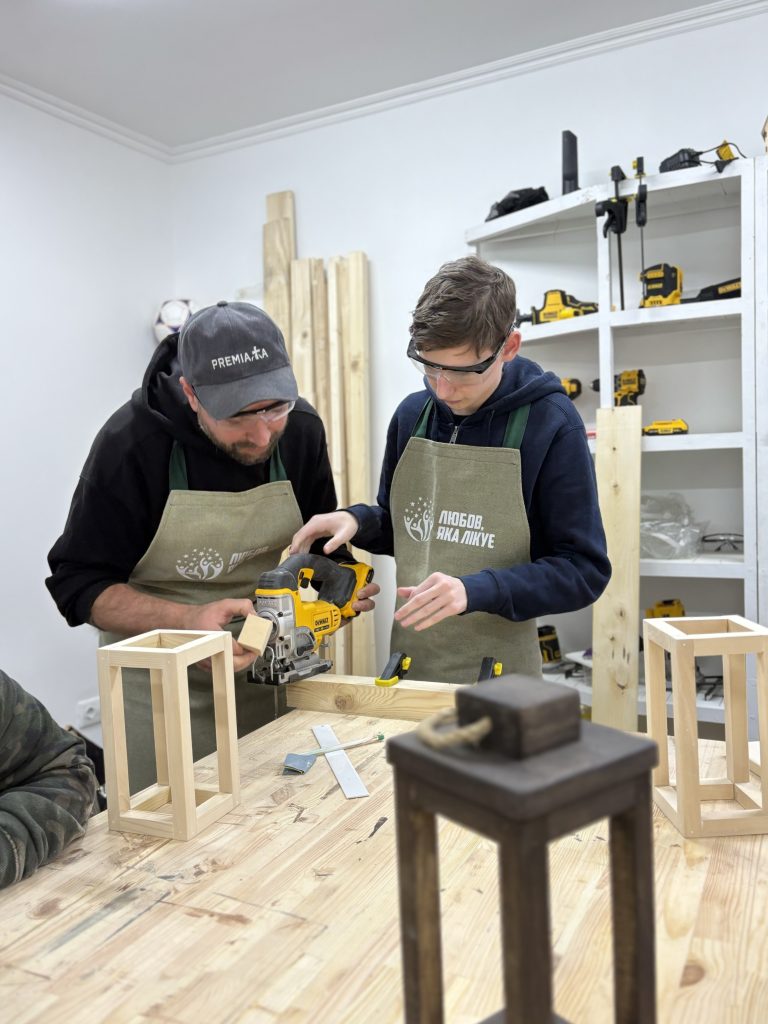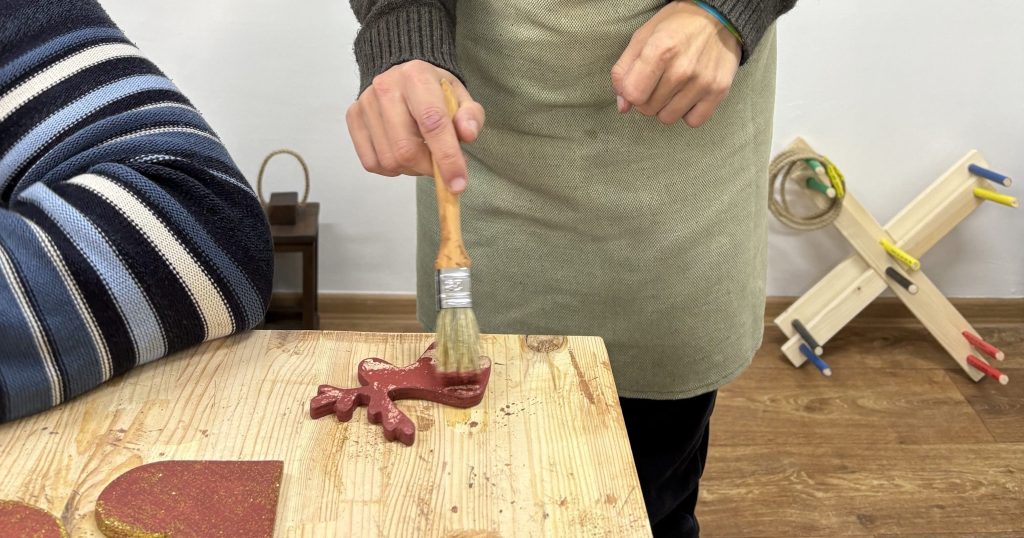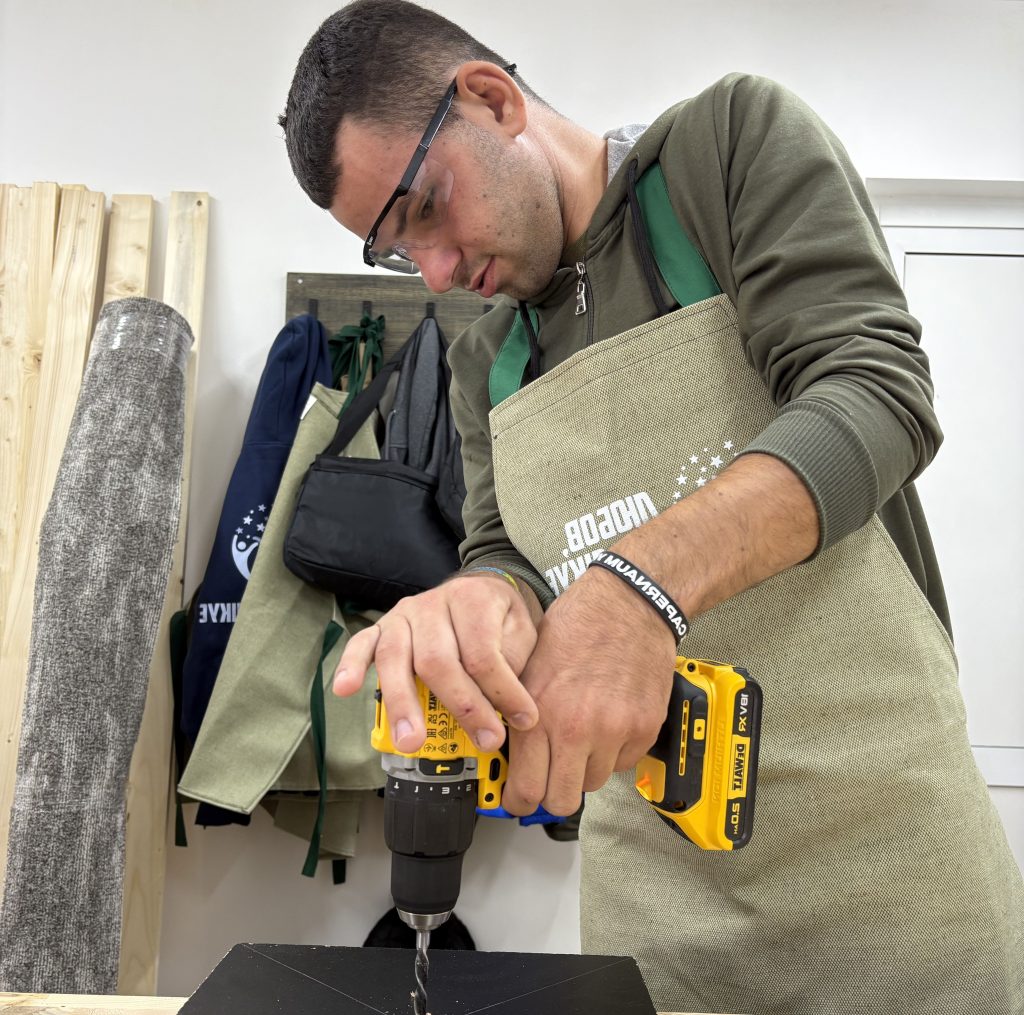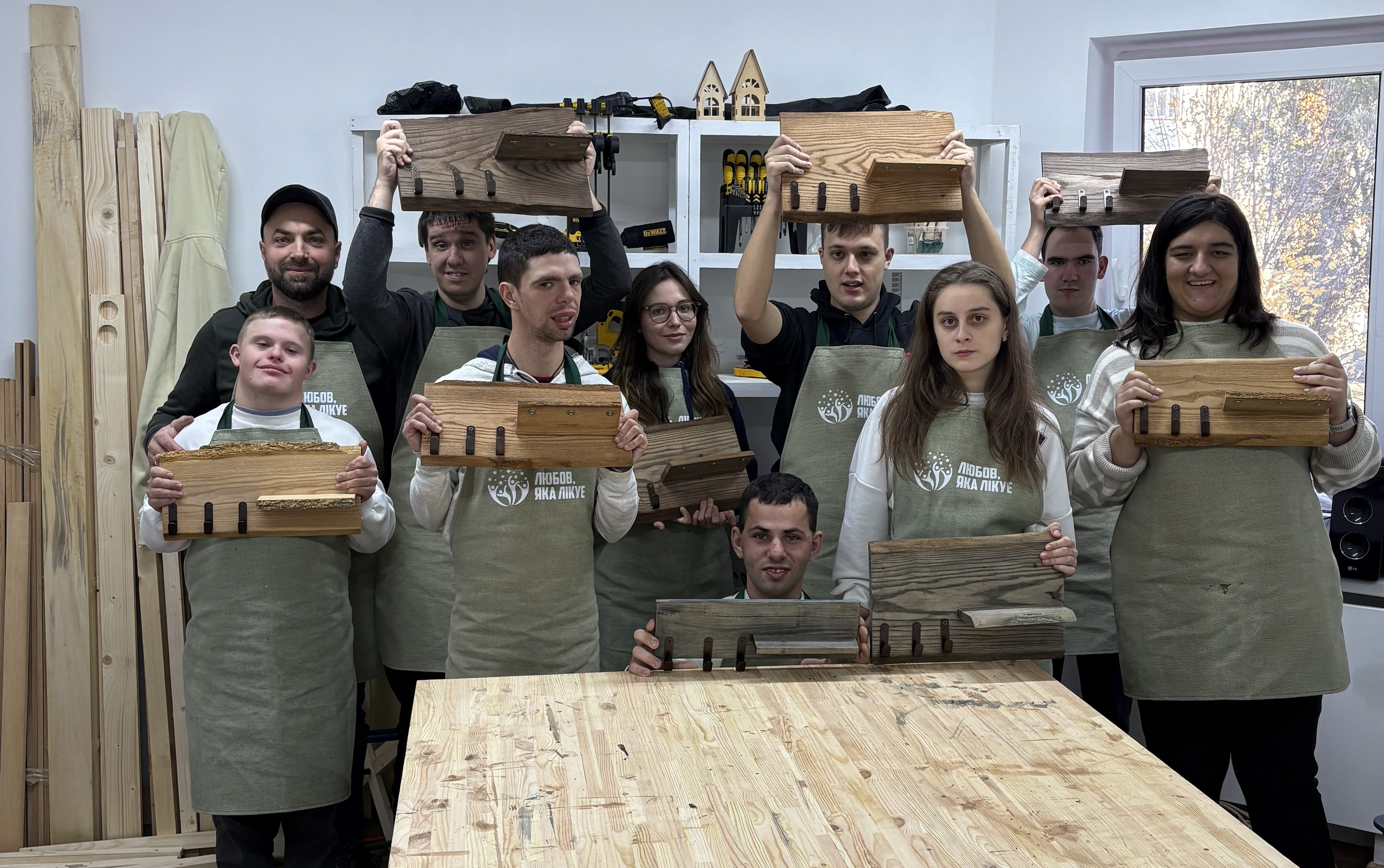Name of the initiative: Woodwork workshop for young people with mental disabilities
A modern woodworking workshop began operating in Chernivtsi for youth with mental disabilities thanks to a micro-grant from the SCLR program. Valeriya Martyniuk, the author of the initiative, says that the space has become a favorite leisure spot for dozens of young people. After all, children with such diagnoses usually remain isolated from society after finishing their education in boarding schools and do not have the opportunity to spend time with their peers and develop.
Applicants purchased woodworking equipment and organized regular classes for youth with mental disabilities with professional craftsmen. The space became the only one in the region where such young people can realize themselves in a workshop with professional mentors. 43 people have been trained, but the space continues to operate after the initiative ends. After the classes, participants became more self-confident and less anxious, especially forced migrants who experienced traumatic events. Participants were integrated into the local community through participation in exhibitions and other events. This micro-grant became the first project of the public organization "Love that heals" founded by the applicants.
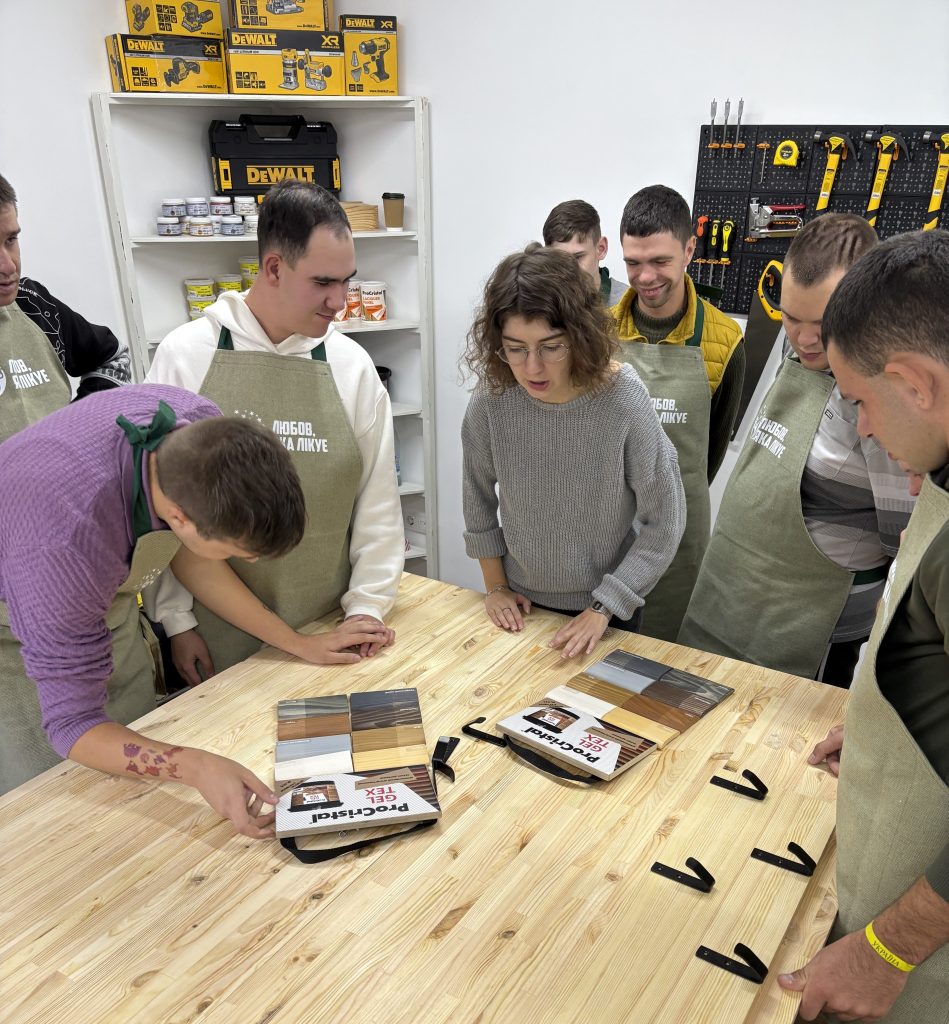
- I had certain concerns about the work of these boys and girls with professional woodworking power tools, - shares the author of the initiative Valeriya Martyniuk. - But under the guidance of the master and with the help of volunteer assistants, they succeeded perfectly! Young people made souvenirs, organizers, other useful things and had a lot of fun. Most of them grew up in families without a father, so they really liked such a man's business. My dream is to make this workshop permanently active and to attract teenagers to it as well, because the demand for such classes is very high.
One of the students, Pavlo Yavorskyi, a 20-year-old orphan from Chernivtsi, has lived in a social institution since childhood. His mental disability created barriers to education and employment. Before studying at the workshop, Pavlo had few opportunities to realize himself and often felt detached from society. During the classes, Pavlo discovered in himself the ability to make wood products. He quickly mastered the basics of working with wood and even took on complex crafts such as making chairs and small tables. His persistence and diligence were noticed by his mentors. Thanks to the project, Pavlo not only gained new skills, but also received an offer of paid work in a local furniture workshop. This became a turning point in his life. Now he can have a stable income, the opportunity to work in a friendly team and realize himself as a master. Pavlo says that this project became for him a ticket to a new life, where he feels needed and useful.
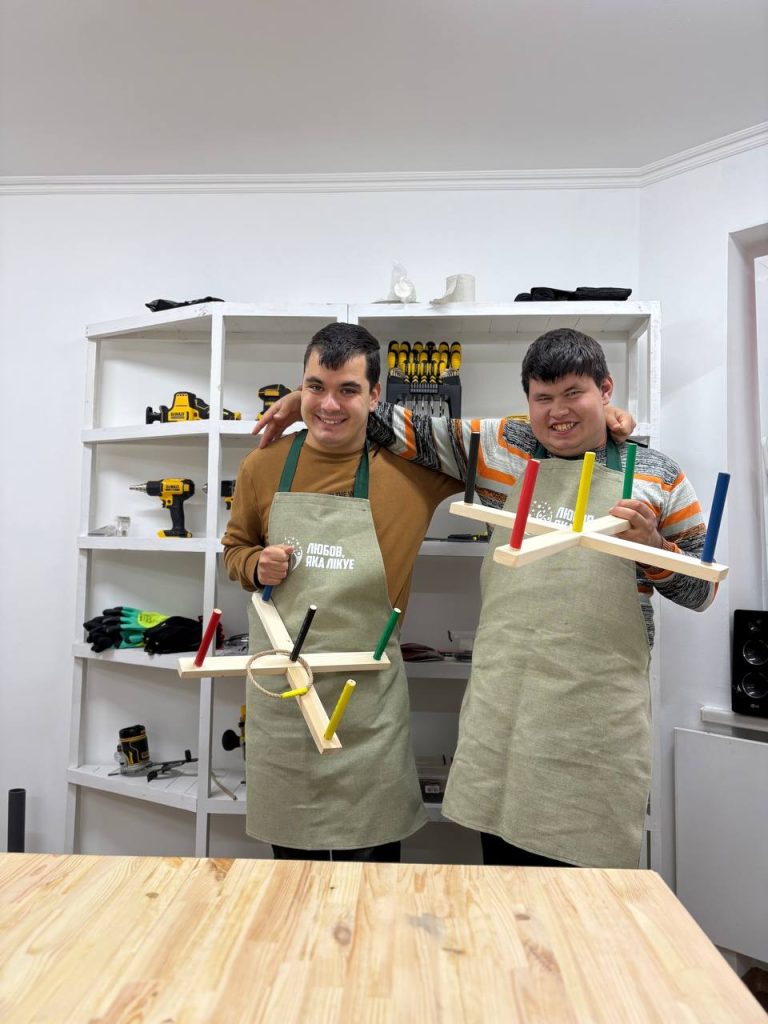
Another visitor to the workshop, Artem Makhinya (pictured on the right), is a 26-year-old IDP from Kharkiv who, because of the war, was forced to move with his family to Bukovyna. Artem has a mental disability, which makes it difficult for him to integrate into a new environment and communicate with people. In Kharkiv, he attended a group for people with disabilities, but due to the move he lost access to tools and conditions for creativity. Having learned about the career guidance space in Chernivtsi, Artem's family decided to involve him in the project. At first, the boy was very shy and kept aloof, but thanks to the friendly atmosphere and the support of the mentors, he gradually began to open up. During the classes, Artyom demonstrated considerable talent in creating wooden toys. His products, in particular carved figures of Christmas trees, impressed the master and visitors to a local exhibition, where he presented his work publicly for the first time. This was a big step for Artem: he not only got a positive experience of interacting with other people, but also felt that his abilities have value.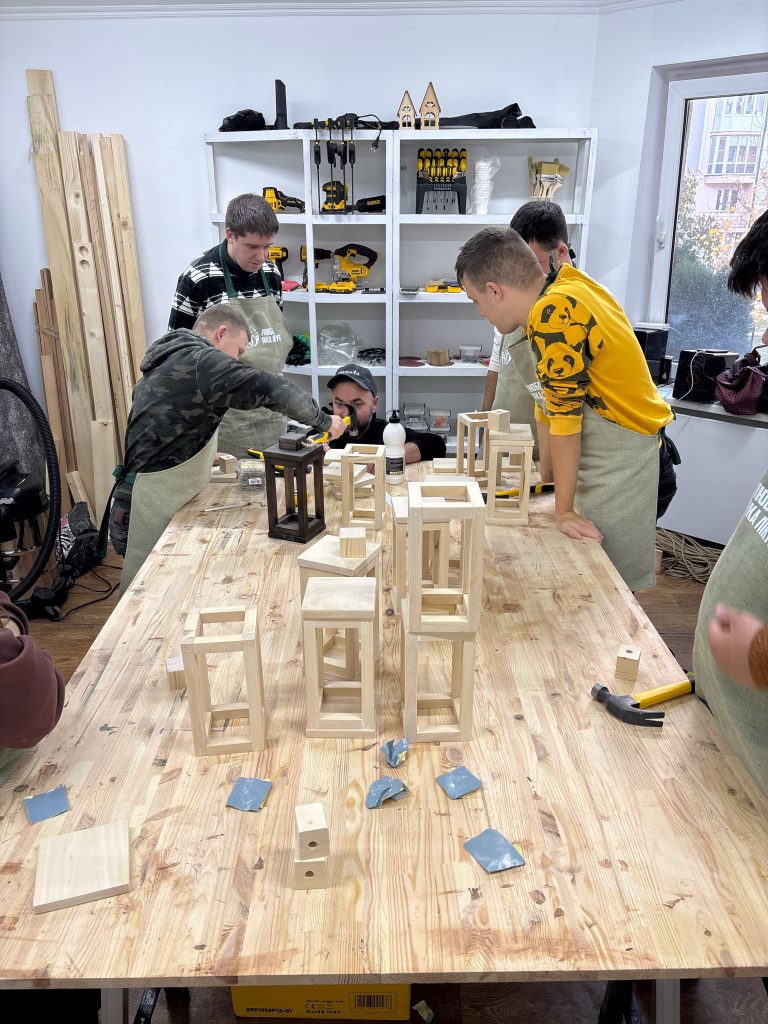
In general, according to the organizers, the project achieved its goals:
1. Participants became more confident in their abilities, thanks to learning new skills in working with wood.
Working with their hands and creating products helped them to distract themselves from stress and improve their emotional state.
A sense of pride in one's own achievements appeared, especially after demonstrating one's works at exhibitions.
2. Young people who previously avoided social contacts due to their mental disability began to actively interact with other participants. The participants learned to work in a team, to support each other and to solve common tasks. The participants of the project - forced migrants, and there were almost half of them - integrated into the local community. Local residents expressed support and interest in the participants' work, which contributed to the formation of a positive attitude towards persons with mental disabilities.
3. All participants mastered the basic skills of working with wood, which opens up opportunities for further employment or self-employment. Several participants created their own products (toys, furniture, etc.) that were highly appreciated at local exhibitions. The youth gained the experience of completing a full production cycle — from planning to project implementation.
4. The quality of life of young people with disabilities has improved. Some participants started applying the skills they learned at home, creating useful things for themselves and their families. Positive changes in emotional state and activity levels contributed to overall improvements in physical and mental health.
5. There have been changes in the way of thinking and attitude of the community. The participants felt that their contribution was valued, and this changed their perception of their own importance in society. Awareness of the problems and needs of young people with intellectual disabilities has increased in the local community, leading to greater inclusion.
Therefore, the project created a platform for long-term impact, laying the foundation for the further social development of youth with mental disabilities and their integration into the community.
